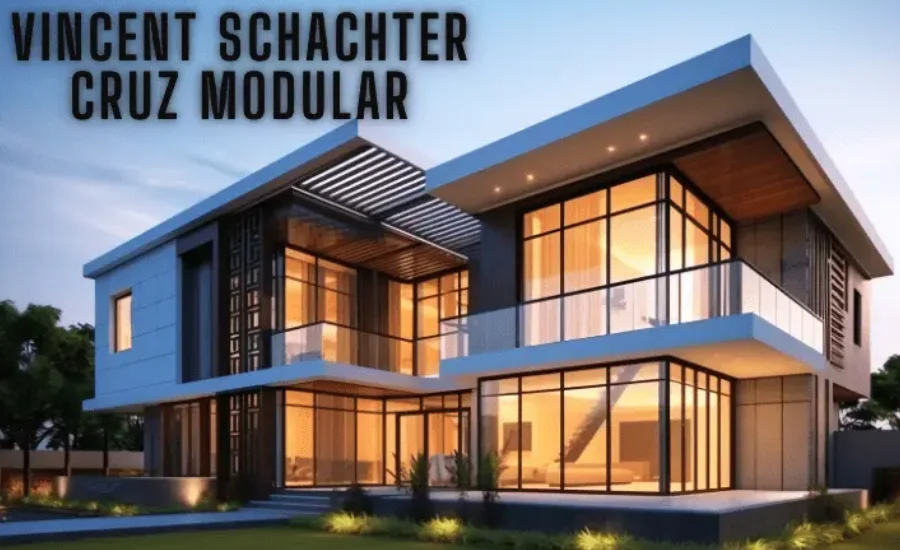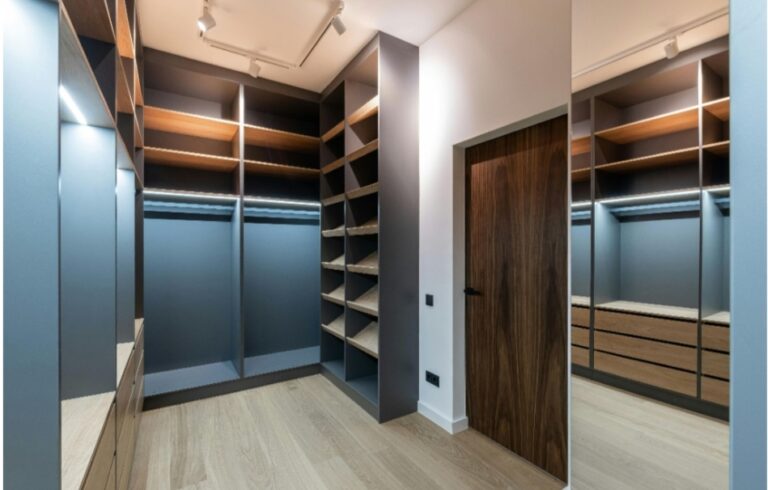Vincent Schachter Cruz modular: Understanding, Visionary in Modular, Partnership, Future And More
Vincent Schachter Cruz Modular has established himself as a prominent leader in the realm of sustainable innovation, particularly excelling in modular construction. His commitment to advancing green technology has made him a key influencer within the construction industry. Schachter’s collaboration with companies such as Cruz Modular showcases his dedication to transforming building practices. Through this partnership, they are reshaping the industry by integrating innovative technologies with environmentally conscious methods. Their collective goal is to revolutionize construction by prioritizing sustainability and efficiency, paving the way for a more eco-friendly and technologically advanced future.
The Concept of Modular Design
Understanding Modular Design
Vincent Schachter Cruz modular: When a building is constructed using a modular design approach, it means that its final structure is assembled from separate prefabricated components, or modules. Because these modules are manufactured in regulated industrial settings, quality and efficiency are increased. Due to the modules’ ability to be enlarged or altered to fulfill unique demands, the technique permits both speedier construction and more design flexibility. Modular construction greatly expedites the building process while preserving accuracy and cutting waste by dividing big projects into smaller, more manageable components.
Modular design is particularly appealing due to its versatility. Structures can be easily adapted or altered without extensive reconstruction, providing a practical solution for changing demands in areas such as population growth or economic shifts. This approach offers a smarter way to construct buildings that are both responsive to human needs and aligned with modern efficiency standards.
Advantages of Modular Design
The advantages of modular construction extend far beyond just faster timelines. Some key benefits include:
- Accelerated Construction Timelines: As modules are built simultaneously while site preparations are ongoing, projects are completed much faster than traditional builds.
- Cost Efficiency: Modular designs lead to cost savings due to reduced labor and material waste, which translates into more affordable building costs for clients.
- Enhanced Quality Control: Since the modules are created in factory-controlled settings, they are subject to strict quality standards, often resulting in better construction quality than on-site methods.
- Sustainability: Modular construction supports environmentally friendly practices, using fewer resources and generating less waste, making it a greener building option.
- Flexibility: These structures can be modified or expanded easily, offering adaptability in a world of ever-changing needs.
- Minimal Site Disruption: With less time required on-site, modular construction reduces disturbances to the local area during the building process.
- Improved Safety: The controlled factory environment enhances worker safety compared to traditional construction sites.
- Energy Efficiency: Modular buildings can incorporate energy-saving features, leading to reduced long-term operational costs.
- Modern Aesthetics: Contemporary modular designs are highly customizable, allowing for stylish and attractive outcomes.
- Streamlined Permitting: In some cases, regulatory approvals for modular projects are faster, further accelerating the construction process.
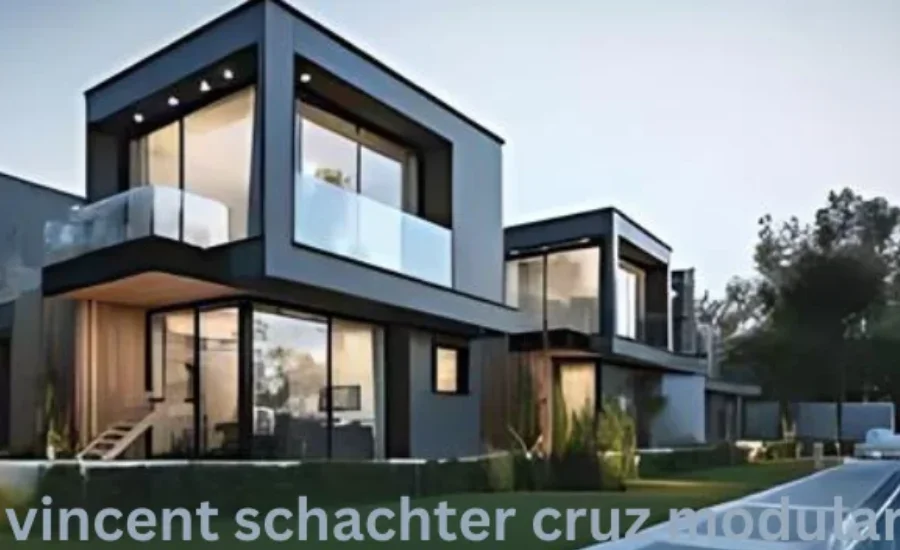
Vincent Schachter: A Visionary in Modular Innovation
Vincent Schachter is widely recognized as a pioneering force in the realm of modular construction. His deep-rooted passion for blending sustainability with advanced design has led to notable contributions to the industry, particularly in his collaboration with Cruz Modular. Schachter’s journey began in traditional architecture, but his innovative mindset quickly led him to explore modular solutions that emphasize adaptability, environmental consciousness, and cutting-edge technology. His belief in the importance of functional, aesthetically pleasing, and sustainable homes has driven his career and positioned him as a leader in the field.
Schachter’s approach integrates not only architectural expertise but also an emphasis on creating living spaces that reflect the lifestyle and desires of their inhabitants. By combining eco-friendly materials, smart home technologies, and future-ready designs, he continues to push the boundaries of what modular homes can offer.
The Cruz Modular Syst Cruz Modular: A Partnership for the Future
The partnership between Vincent Schachter and Cruz Modular is a powerful fusion of visionary design and advanced technology. Together, they are leading the charge in transforming the construction industry by offering sustainable and innovative building solutions. Their shared commitment to addressing the environmental challenges posed by traditional construction methods is evident in their modular approach, which not only saves time and resources but also reduces environmental impact.
Schachter’s role as a leader in research and development at Cruz Modular has been instrumental in driving forward new technologies that enhance the modular construction process. Through the incorporation of automation and AI, Schachter has helped streamline construction workflows, reducing labor costs and improving overall project efficiency.
Innovations Brought Forward by Vincent Schachter
Schachter has spearheaded several key advancements within Cruz Modular, including the implementation of automated construction techniques that minimize labor-intensive tasks while maximizing precision. Additionally, he has promoted the development of energy-efficient building materials that reduce operational costs and lower carbon emissions. His vision for the future of modular homes also includes integrating smart home technologies, allowing homeowners to experience the latest in automation, connectivity, and energy management.
Sustainability as a Core Principle
Sustainability is at the core of Vincent Schachter’s modular design philosophy. Prefabricated modules are produced under regulated conditions, which decreases project carbon footprint and cuts down on construction waste. Furthermore, Cruz Modular designs usually include energy-efficient features like solar power choices and upgraded insulation. In addition, Schachter promotes recyclable and renewable materials, which helps to further promote environmentally responsible construction practices that benefit present and future building occupants as well as the environment.
In summary, Cruz Modular and Vincent Schachter are leading a revolution in modular building that will influence sustainable living in the future. Their dedication to creativity, adaptability, and environmental responsibility raises the bar for contemporary building techniques and demonstrates that eco-friendly houses can be designed to be aesthetically pleasing and useful without sacrificing efficiency or quality.
Applications of Cruz Modular Design Across Various Sectors
The Cruz Modular design has shown to be a ground-breaking answer in a variety of fields, most notably in resolving issues with the construction of public, commercial, and residential infrastructure. This modular technique is becoming more and more popular in both urban and rural locations since it offers a versatile, affordable, and ecologically friendly solution for a range of construction demands.
Modular houses have gained popularity in residential spaces because they can quickly and affordably solve housing shortages and difficulties related to urban congestion. For those searching for economical, yet personalized houses, the possibility to alter designs and layouts makes this a desirable choice. Modular houses provide a variety of designs to fit diverse lifestyles, making them ideal for first-time homebuyers as well as those ready to downsize. With the increasing pressures of urbanization, Cruz Modular homes are seen as integral to the future of housing, particularly in rapidly growing urban centers.
For commercial projects, Cruz Modular design offers businesses the chance to scale their operations rapidly and efficiently. Whether constructing offices, retail spaces, or hospitality venues, the modular approach cuts down on construction timelines and costs, making it a highly practical choice for businesses. Furthermore, its adaptability allows businesses to easily adjust or expand their spaces as their needs evolve. The aesthetic flexibility of these designs also enhances customer experiences and boosts employee satisfaction, as they can create environments that are both functional and visually appealing.
In public infrastructure, the Cruz Modular system is playing a vital role in meeting the demand for essential community services like schools and healthcare facilities. Its quick construction turnaround is crucial in delivering infrastructure that communities urgently need, especially in areas experiencing rapid growth. The modular approach’s adaptability also extends to multifunctional public spaces, such as schools that double as community centers. This versatility maximizes space usage and ensures that public infrastructure can evolve alongside the communities it serves.
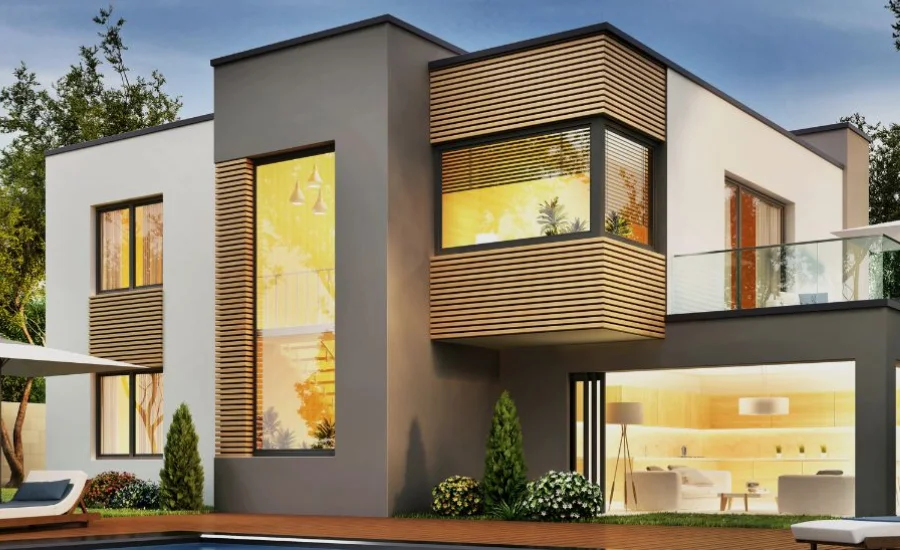
Advantages of the Cruz Modular System
One of the key benefits of the Cruz Modular system is the customization it offers. Unlike traditional housing, where standard layouts dominate, Cruz Modular homes allow for extensive personalization. Homeowners can select from a variety of layouts and finishes to create spaces that reflect their tastes and needs. This flexibility is ideal for creating homes that grow and change with the family, providing a unique sense of ownership and pride.
Another significant advantage is the speed and efficiency of the modular construction process. Unlike traditional construction, where timelines are often drawn out by various on-site factors, much of the Cruz Modular construction is completed off-site. This minimizes disruptions at the build location and allows for faster completion times without compromising the quality of the structure. The precision manufacturing process also ensures that each module meets strict specifications, reducing errors and enhancing overall build quality.
Cruz Modular homes are also aligned with the goals of eco-friendly living, as the company emphasizes sustainability in its construction processes. By using recycled materials and energy-efficient designs, these homes significantly reduce their environmental impact. The off-site prefabrication process not only speeds up construction but also minimizes material waste, making modular construction a more sustainable alternative to traditional building methods.
Real-World Applications and Sustainability
Several real-life examples showcase how Cruz Modular homes are transforming the housing and commercial sectors. In densely populated urban areas, modular homes can be arranged in innovative ways, maximizing limited space. Meanwhile, in remote locations, modular homes can be quickly assembled in areas where traditional construction would be challenging, providing housing where it’s needed most. Additionally, the Cruz Modular system has been employed for disaster relief, where its rapid assembly and affordable cost make it an ideal solution for providing shelter to affected populations.
At the heart of Cruz Modular’s philosophy is a commitment to sustainability. By focusing on reducing waste through prefabrication and using energy-efficient materials, the company is taking significant steps towards lowering the long-term carbon footprint of its buildings. This environmental consciousness, driven by Vincent Schachter’s leadership, ensures that Cruz Modular homes contribute to a greener future.
Innovations and Technology in Cruz Modular Design
Cruz Modular is pushing the boundaries of modular construction by embracing advanced materials and integrating cutting-edge technology. The use of innovative materials like lightweight composites ensures durability and sustainability. Some structures also incorporate smart materials that adapt to environmental changes, such as temperature-regulating phase-change materials, further reducing the need for energy-intensive heating and cooling systems.
Technology integration is another critical component of Cruz Modular’s innovative approach. Smart home systems are frequently included in the design, improving both energy efficiency and the overall living experience. Additionally, the use of Building Information Modeling (BIM) in the planning stages enhances collaboration and precision, reducing errors during construction.
Overcoming Challenges and Future Outlook
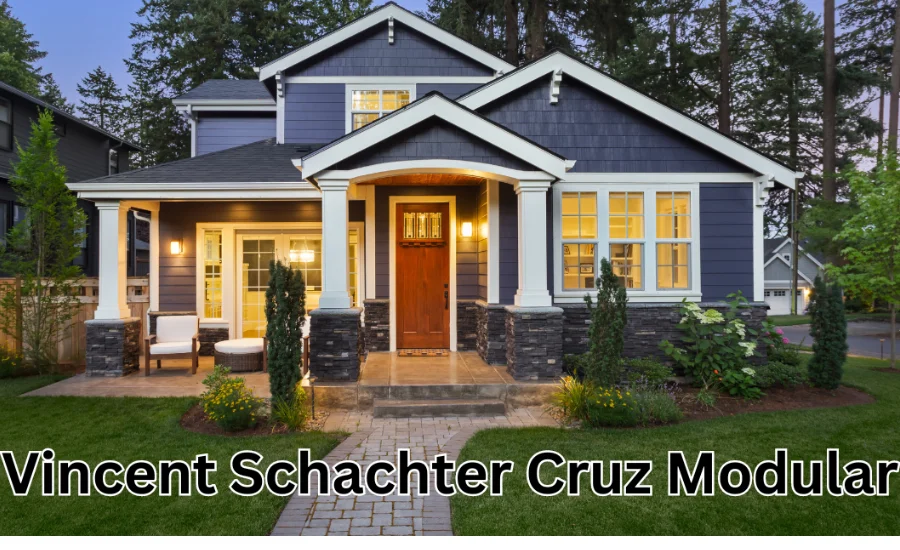
Although Cruz Modular’s strategy has several benefits, there are challenges in the sector. The introduction of modular building has occasionally been hampered by regulatory obstacles and false beliefs about its quality. Vincent Schachter has played a significant role in pushing for modifications to building codes and collaborating with stakeholders to improve procedures in order to address these issues. Cruz Modular is leading the way in the industry and facilitating a wider adoption of modular building by tackling these problems.
Vincent Schachter envisions a world in which modular building is the preferred method of meeting the world’s housing requirements. The modular construction sector has the potential to completely transform the way we think about creating houses and public areas because to technological advancements like 3D printing and smart materials. Cruz Modular is positioned to lead this transformation, bringing sustainable, affordable, and aesthetically pleasing modular homes to markets around the world.
Read More: Claudio Carlos Basso
Final Words
The creative, adaptable, and sustainable solutions that the Vincent Schachter-led Cruz Modular design is providing for a range of industries is changing the building environment. Modular construction has been shown to be a quick, economical, and environmentally responsible substitute for conventional methods in a variety of settings, including public infrastructure, commercial buildings, and residential spaces. With its focus on sustainability, technological integration, and personalization, it has the potential to completely transform urban development and satisfy the world’s housing need. Cruz Modular is paving the way for a day where modular architecture is synonymous with quality, adaptability, and environmental conscience despite obstacles like public perception and governmental restrictions. It is positioned to take the lead in tackling the pressing global concerns of affordable housing, urbanization, and disaster assistance because to ongoing improvements in materials and technology.
For more information Check It Out BlogBlower
